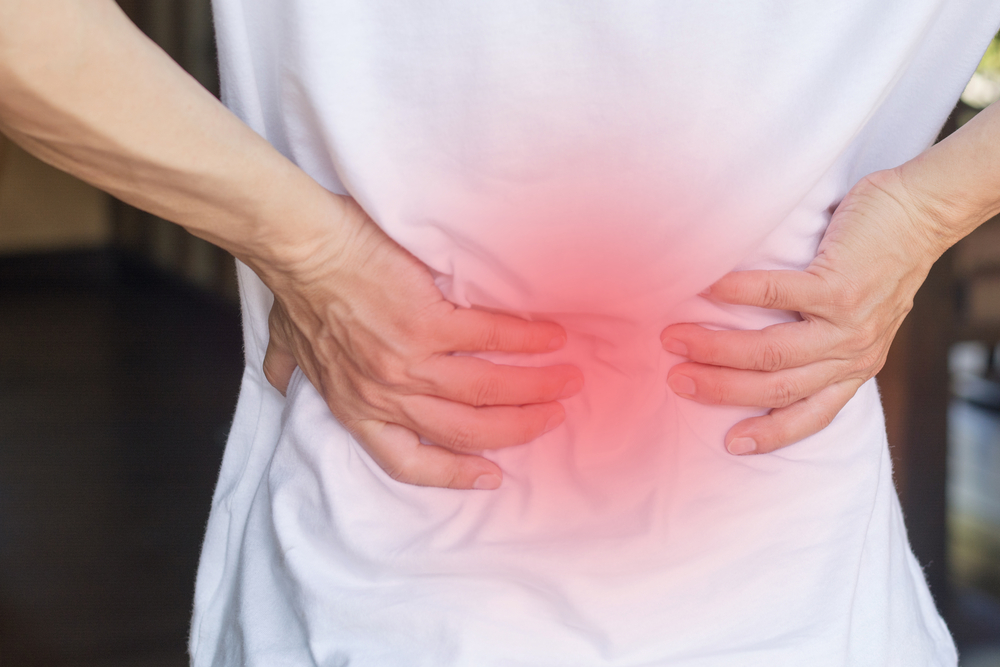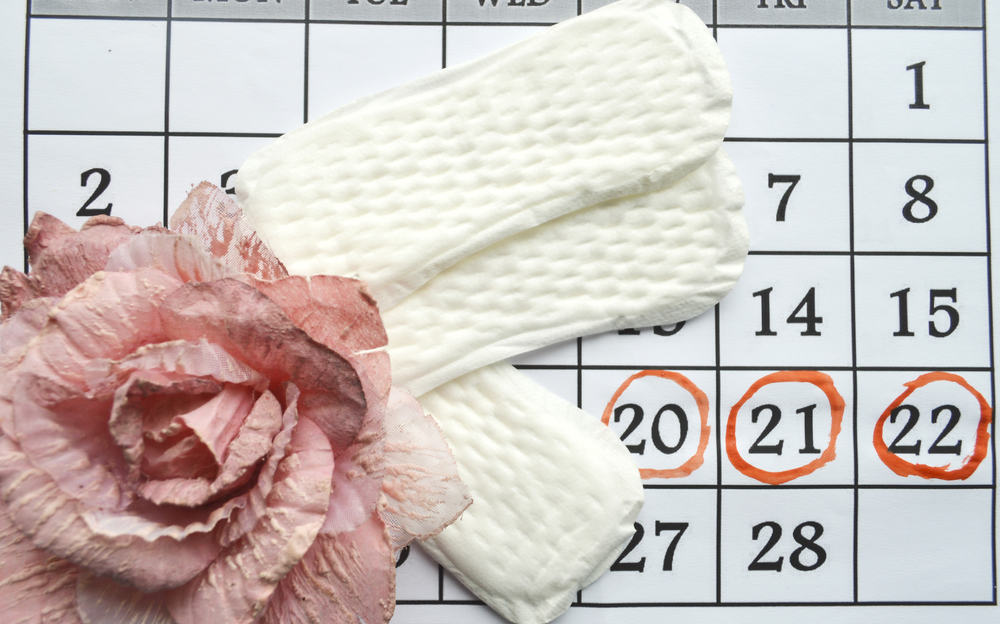Contents:
- Medical Video: 5 Common Signs of Kidney Problems
- Actually what is kidney function in the body?
- Various symptoms of your kidney have problems
- 1. Changes in urinary color
- 2. Excessive swelling
- 3. Shortness of breath
- 4. Redness of the skin (skin rashes)
- 5. The feeling of iron in the mouth
- 6. Lack of concentration and dizziness
- 7. Pain in the back of the back (low back pain)
- 8. Limp
- 9. Nausea and vomiting
- How to find out about kidney symptoms in your body
- What medications for chronic and acute kidney symptoms?
- 1. Medicine
- 2. Diet
- 3. Kidney transplant
- Change your lifestyle and diet so that kidney symptoms can be overcome
- 1. Changes in lifestyle
- 2. Changes in diet
- Check immediately if you find symptoms of kidney symptoms
Medical Video: 5 Common Signs of Kidney Problems
According to Center for Disease Control and Prevention (CDC), 1 in 10 adults or more than 20 million people experience chronic kidney failure. There are ten problematic kidney symptoms that need to be consulted by your doctor immediately, before getting worse. What are the symptoms of a kidney? Check below, yes!
Actually what is kidney function in the body?
Kidney You are one of the small organs in your body, but it has a big task to filter out poisons in your body every day. In fact, the kidneys must filter approximately 20-150 liters of blood to produce approximately 1-2 liters of urine (urine), which consists of useless ingredients and excess fluids.
Each kidney has a million small filters known as nephrons. Normally, everyone is born with two kidneys. The kidneys are shaped like red beans and are located on the right and left under your ribs.
Various symptoms of your kidney have problems
1. Changes in urinary color
This is a symptom of the main problem kidney. If you have the following changes, it is better to immediately check with your doctor:
- Changes in urinary flow pressure when urinating
- Various disorders when urinating
- Foaming urine
- Darker urine color is followed by the frequency of infrequent or slight urination
- Bloody urine
- The desire to urinate frequently, even at night when you sleep
2. Excessive swelling
Because your kidneys are responsible for filtering fluids in your body, these non-filtered fluids will swell your body. When protein escapes from kidney filtration and is wasted through urine, fluid in the body builds up and causes swelling. This swelling mainly occurs in your hands and feet.People with common kidney problems experience swelling of the eyes (puffy eyes).
On the other hand, protein in the urine is a clear sign that you have symptoms of a kidney that is problematic and cannot filter properly. If this happens, filters in the kidneys will allow the protein to enter mixed with urine.
3. Shortness of breath
When your kidneys work hard, fluid will accumulate in the kidneys even in other tissues of your body such as the lungs. This buildup of fluid in the lungs makes you hard to breathe. The lack of oxygen in the blood makes your body also cause breath to pant and hunt.
4. Redness of the skin (skin rashes)
When your body is filled with toxins, various processes will occur in the body that occur to eliminate these poisons. One way is through the skin pores. This appears in the form of redness, itching, and dryness on the skin.
Skin creams and ointments can indeed help reduce symptoms that arise on the skin, but this does not cure your kidney symptoms.
5. The feeling of iron in the mouth
Bad taste on the tongue or mouth can also be a symptom of a problem kidney. Sometimes, your body will be filled with too much poison so you can feel it directly. People with kidneys that do not work optimally will feel an iron feeling in their mouth. This also triggers to bad breath (halitosis) and decreased appetite.
6. Lack of concentration and dizziness
When your kidneys cannot filter toxins properly, oxygen will be difficult to supply throughout the body, especially to the brain. This triggers dizziness, lack of concentration, weak memory, and a feeling of headache.
7. Pain in the back of the back (low back pain)
Pain in the back of the back is very likely to be a symptom of a troubled kidney or an infection in the surrounding organs. This pain can be as a result of being kidney stones or urinary tract infection.
8. Limp
In healthy people, the kidneys will produce EPO (erythropoietin), which can increase red blood cells in your blood. These red blood cells will carry oxygen to parts of your body. Well, the lack of EPO in the kidneys that has problems makes oxygen levels decrease so that it can cause weakness.
Lemas that are chronic are also a symptom of anemia. So it is important for you to discuss it with your doctor if your body or muscle is often weak without obvious reasons.
9. Nausea and vomiting
Because toxic waste products accumulate in your blood, this can cause disruption of the vomiting center in the body, causing nausea and vomiting. Nausea and vomiting are also signs of a urinary tract infection, so it's a good idea to see a doctor immediately. Especially if you also feel pain in your back and stomach.
How to find out about kidney symptoms in your body
Early kidney disease usually has no signs or symptoms. Testing is the only way to find out how your kidneys are. It is important for your kidneys to be examined if you have major risk factors such as diabetes, high blood pressure, heart disease, or a family history of kidney failure.
Here are some of the tests needed to diagnose kidney disease:
- A blood test to check your GFR, which tells you how well your kidneys are screening. GFR stands for glomerular filtration rate.
- A urine test to check albumin in your urine. Albumin is a protein that can flow into the urine if there is a damaged kidney.
It is also important to check your blood pressure. High blood pressure can be a sign of kidney disease. That is why, keep your blood pressure below the target set by your health care provider. For most people, the target blood pressure is less than 140/90 mm Hg.
The faster kidney disease is detected, the faster you can get treatment to help slow or prevent kidney failure. If you have diabetes, check it every year. If you have other risk factors, such as high blood pressure, heart disease, or a family history of kidney failure, talk to your doctor about how often you should be examined.
Your doctor may use an ultrasound (USG) test to assess the structure and size of your kidney. Imaging tests such as kidney CT scans can also be used in some cases.
Your doctor may also recommend a kidney biopsy to take samples of kidney tissue. Kidney biopsy is often performed under local anesthesia using a thin and long needle inserted through the skin and into your kidney. Biopsy samples are sent to the laboratory for testing and help determine what causes your kidney problems.
What medications for chronic and acute kidney symptoms?
Depending on the underlying cause, some types of kidney disease can be treated. However, often, chronic kidney disease cannot be cured. In general, treatment consists of steps to help control symptoms, reduce complications, and slow the severity of the disease. If your kidney becomes seriously damaged, you may need treatment for end-stage kidney disease.
Your doctor will work to slow down or control the cause of your kidney disease. Treatment options vary depending on the cause.Here are some treatment options for kidney disease:
1. Medicine
Doctors may prescribe ACE inhibitors (captopril, enalpril, fosionopril) or ARBs (azilsartan, eprosartan, irbesartan, losartan, olmesartan, valsartan) to help control blood pressure and reduce levels of protein in the urine.
While if you have kidney infection, antibiotics may be prescribed for some time to help inhibit and fight bacterial growth.
2. Diet
People who have kidney disease must pay attention to their food intake properly. Usually doctors recommend doing it low salt diet, protein, potassium, and so on. Not only that, patients with this disease must also limit their fluid intake so that it does not accumulate in the body.
If your kidneys cannot filter waste and cleanse your own fluid and you have complete kidney failure, then you have end-stage kidney disease. At the time, dialysis or kidney transplant needed.
Artificial dialysis removes waste products and extra fluids from your blood when the kidneys can no longer do this. In hemodialysis, the machine filters out waste and excess fluid from your blood.
On peritoneal dialysis, a thin tube (catheter) is inserted into your stomach, filling your abdominal cavity with dialysis fluid that absorbs waste and excess fluid. After a period of time, dialysis solution comes out of your body, carrying waste.
3. Kidney transplant
Kidney transplants involve surgery to place a healthy kidney from a donor, into your body. Kidney transplants can come from dead or living donors. You must use the drug for the rest of your life to keep your body from rejecting new organs.
If you choose not to do dialysis or kidney transplantation, the third option is to treat your kidney failure with conservative measures. However, after you have complete kidney failure, your general life expectancy will be only a few weeks.
Change your lifestyle and diet so that kidney symptoms can be overcome
People with kidney disease can continue to live productively like working, gathering with friends and family, and staying physically active. You might need to make some diet and lifestyle changes to help you live healthier and longer. Because heart attacks and strokes are more common among people with kidney disease, these changes are good for your heart and for your kidneys.
1. Changes in lifestyle
Following a healthy lifestyle that is good for people with kidney disease is mandatory, especially if you have diabetes, high blood pressure, or both. Talk to your dietician, diabetes specialist, or other professional health care about the actions that are most important to you for you to do. As you will see, many of these actions are interrelated.
- Keep your blood pressure at the target set by your doctor. For most people, the target blood pressure is less than 140/90 mm Hg. Arrange so that sodium levels are less than 2,300 milligrams (mg) every day.
- If you have diabetes, control your blood glucose level. Good blood glucose control can help prevent or delay diabetes complications, including kidney disease.
- Keep your blood cholesterol in your target range. Diets, being active, maintaining a healthy weight, and drugs can all help control your blood cholesterol level.
- Take medication according to the method recommended by your doctor.
- If you smoke, take steps to stop. Smoking can make severe kidney damage.
- Become more active. Physical activity is good for your blood pressure, as well as your blood glucose and blood cholesterol level.
- Lose weight if you are overweight. Being overweight makes your kidneys work harder. Losing weight helps your kidneys last longer.
2. Changes in diet
What you eat and drink can help slow down the symptoms of the kidneys developing into kidney disease. Some foods may be better for your kidneys. Most of the salt and sodium additives we eat come from fast food. Cooking your own food will give you control over what you eat.
Your doctor may recommend that you consult a nutritionist. A dietitian can teach you how to choose foods that are easily processed by the kidneys. You will also learn about nutrients that are important for kidney disease.
Check immediately if you find symptoms of kidney symptoms
The sooner you know that you have kidney disease, the faster you can get treatment to help delay or prevent kidney failure. Treatment may include using a drug called ACE inhibitors or ARBs to manage high blood pressure and keep your kidneys healthy for longer. Treating kidney disease can also help prevent heart disease.
Kidney disease may also make the condition worse over time and can cause kidney failure. If kidney failure occurs, treat it with dialysis or kidney transplant will be needed. Kidney disease can also cause other health conditions including heart disease. In fact, people with kidney disease are more likely to experience a stroke or heart attack.












